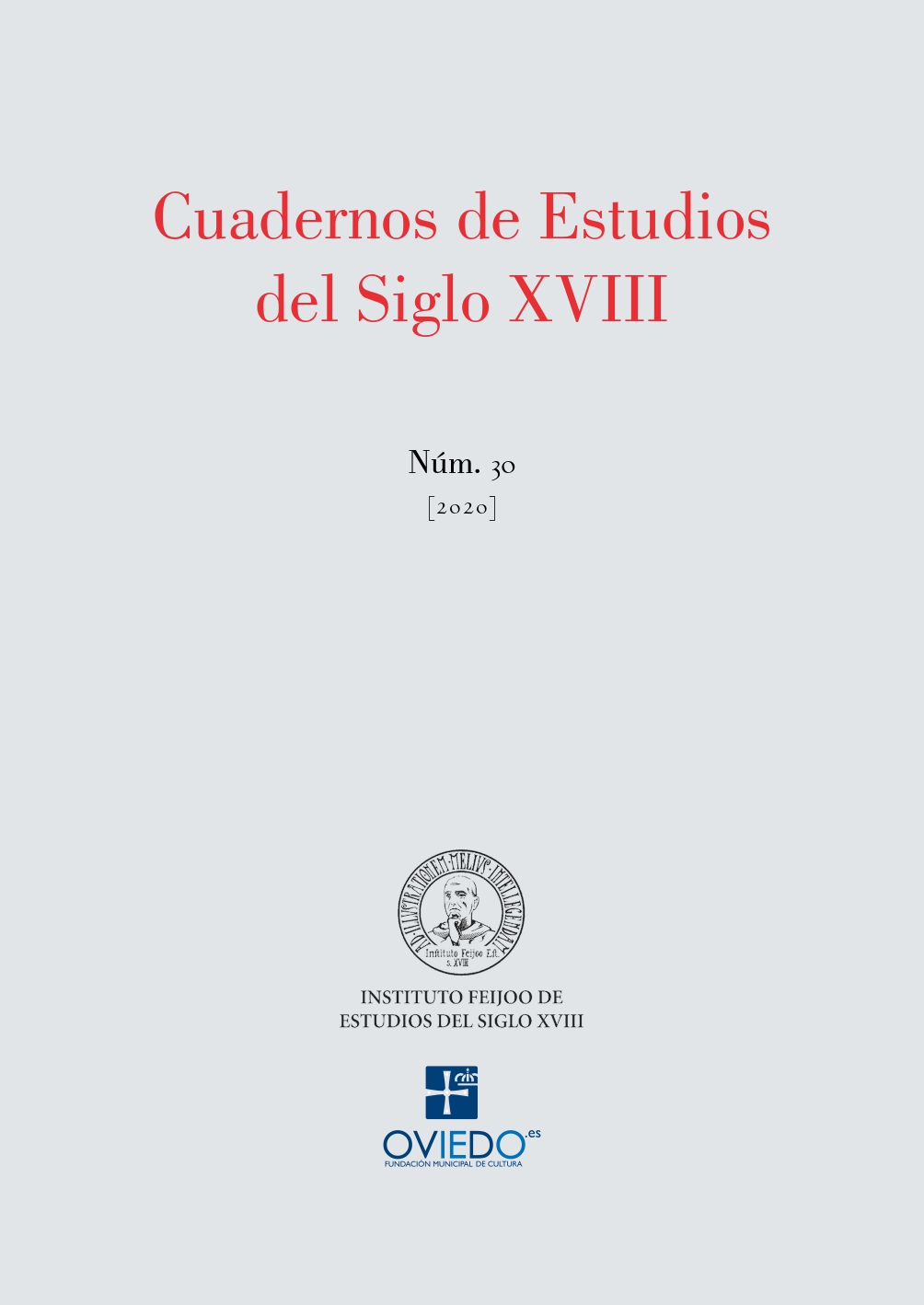Abstract
Despite their interest for Hispano-Amerindian philology, Antonio Ruiz de Montoya's and Pablo Restivo's "Vocabularios" (1640-1722) have not been studied systematically. They nonetheless stand as privileged witnesses of Jesuit linguistic policy in the Order's Paraguayan missions. Through a diachronic comparison of these two dictionaries, we develop both a quantitative and qualitative analysis of their content, driven by a relational database and a conceptual approach inspired by missionary linguistics. Three emblematic lexicographic phenomena of the 18th century are highlighted: the progressive recognition of native speakers' oral and written authority, the increasing hispanisation of cattle-related lexicon and the persistency of animist taxonomies and ontologies.
This work is licensed under a Creative Commons Attribution-NonCommercial-NoDerivatives 4.0 International License.
Copyright (c) 2020 Cuadernos de Estudios del Siglo XVIII
Downloads
Download data is not yet available.

